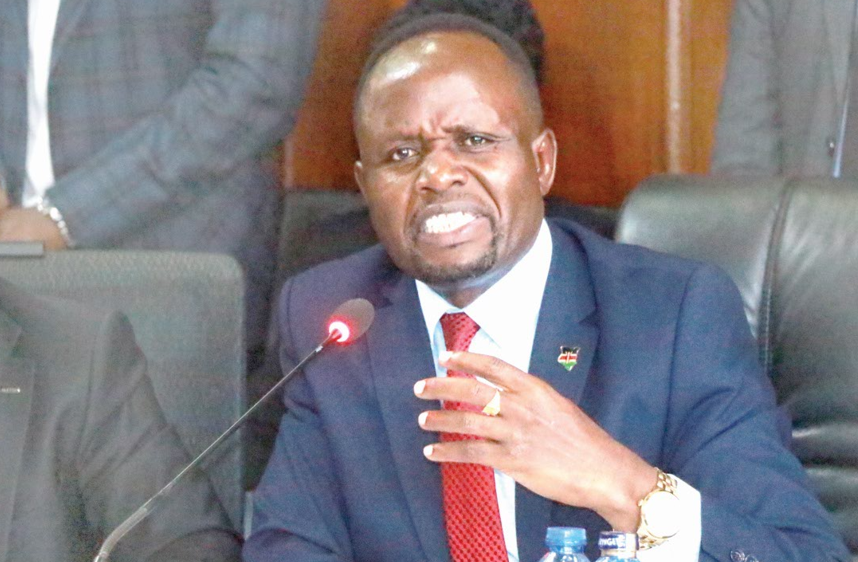Lobby lashes out at State over education policies

An education lobby yesterday accused the government of running down the education sector through it’s attempts to implement policies that are unrealistic and non-achievable.
The Elimu Bora Working Group led by Boaz Waruku said the government has rushed through several policies such as the payment of secondary school fees through e-citizen, the Presidential Working Party on Education Reform (PWPER), new public universities funding model, the domiciling of the Junior Secondary School (JSS) in primary schools and the employment of JSS teachers on contract, among others, that pose a major threat to the education sector.
The group now wants the government to among other steps, stop discordant roadside policy pronouncements; establish a National Education Fund to ensure that all students get free and compulsory basic education and enhanced access to tertiary education; consolidate all bursary funds and depoliticize education financing; and public education for all must be planned and implemented based on a holistic school approach.
“Since Kenya’s August 9, 2022 General Election, there seems to be no well-thought-out to help fix many challenges affecting out education system. There are missteps and our education sector is running into ruins. Examples abound, and it appears no one in this regime cares to sort this mess,” Waruku said yesterday.
Ecitizen plan
The group demanded that the rethinks the decision to have parents make the fees payment through the e-citizen warning that it is poised to become Kenya’s biggest scandal.
“We are aware that the demands that all fee payment be made through e-citizen is making one of the biggest scandals in the country,”said Waruku.
Last week, President Ruto declared that all school fees must be paid through the digital platform, e-Citizen explaining that this development was unstoppable.
He said the digital platform, 222222, was a transparent and accountable way of ensuring school principals do not introduce illegal fees to overburden parents.
President Ruto was addressing Kenyans residing in Japan during his state visit.
“You may have heard the latest about school fees in Kenya. Some of the money paid by parents in boarding schools, we are insisting that it be paid through e-Citizen,” Ruto said.
He said the new policy that requires school fees be paid through e-Citizen, the government’s digital platform, will eliminate illegal levies charged by certain schools. “Because we realise there are illegal levies charged by the Board of Management of Schools that are prone to abuse, we want to reduce and eventually end them,” Ruto said.
The group said that though the National Treasury has released a Sh.31 billion capitation fund to schools for this year’s first term, significant spending bills remain unpaid due to the 2023 unremitted capitation grant.
They want multiple public bursary streams controlled by political leaders, leading to biased fund allocations reviewed. “This occur amidst parents struggles as they strive to secure financial assistance to support their children’s education,”said Waruku.
The group now demands mobilisation to ensure that all children are in school and learning. They also want cessation of discordant roadside policy pronouncements with creation of a National Education Fund to guarantee that all students get free and compulsory basic education, and enhanced access to tertiary education.
“Public education for all -including the vulnerable, children with disabilities, urban slum residents, rural poor, hard to reach and insecure communities must be planned and implemented based on a holistic school approach,”said Waruku.
He added: “Despite the regime’s claim of hiring 37,000 teachers, their contractual terms were inequitable. Around 30, 000 were brought in as interns for one year, which was mysteriously extended for another year.”
The group is demanding for accountability and is intensifying the call for public education fund to be fully implemented. They also want an oversight by calling out mistakes, pushing for effective, appropriate action to correct anomalies, and enabling Kenyans not to settle for mediocrity and mischief by irresponsible public servants.
“We are demanding that there be an intensified close monitoring and scrutiny of the education sector and governance processes and ensure the stoppage of further processing of results based on such opaque yardsticks.”
According to the group, Parliament allocated Sh628.6 billion to education in the current financial year. However, the regime failed to release 37 percent of capitation funds to schools in 2023.
“Despite this regime’s 100 percent transition policy,it has done little to achieve quality. Out of 899,453 students who took the KCSE, 48,174 scored Grade E, showing the quality of education is going down.










